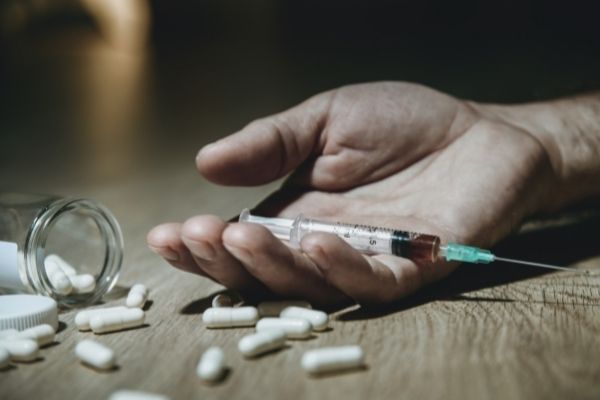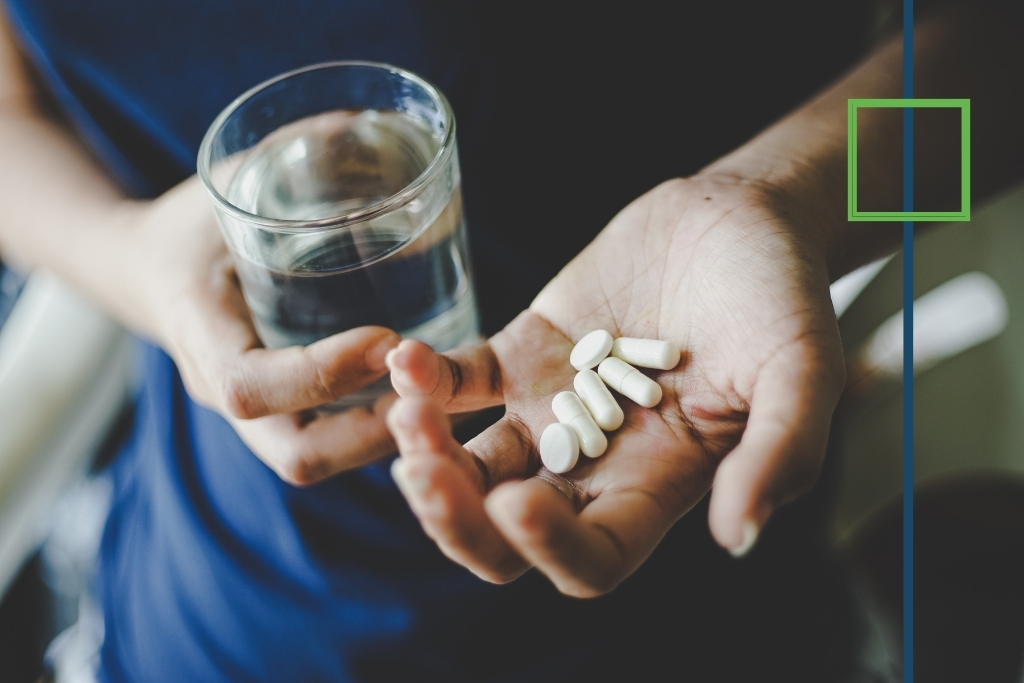What is Medication Assisted Treatment (MAT)?
Medication assisted alcohol treatment has proved to be clinically effective and significantly reduce the need for inpatient detoxification services for individuals suffering from alcohol abuse. MAT provides a more comprehensive, individually tailored program of medication and behavioral therapy that addresses the needs of most patients. [1]

It is one of the most effective ways to deal with substance abuse. It is also one of the safest and has a proven track record when it comes to reducing health care costs, improving patient outcomes, and most importantly giving people an opportunity for a happier, healthier life.
Medication assisted alcohol treatment (MAT) is the use of medications, in combination with counseling and behavioral therapies, to provide a “whole-patient” approach to the treatment of substance use disorders.
Substance Use Disorders have been generally treated as if they were an acute illness, rather than a chronic disease. Research results suggest that long-term care strategies of medication management and continued monitoring produce lasting benefits. The use of MAT for those suffering from addiction should be insured, treated, and evaluated like other chronic illnesses.
What are the Benefits of Medication Assisted Alcohol Treatment?
Though their precise mechanisms of action are different for each person, many medications in the treatment of addiction help to restore balance to the very neurochemical processes that are disrupted because of drug and alcohol use.
You may be prescribed treatment drugs to help treat certain types of addiction because they may help you diminish cravings and withdrawal.
Buprenorphine
Buprenorphine is a medication approved by the Food and Drug Administration (FDA) to treat opioid use disorder (OUD) as medication-assisted treatment (MAT). As with all medications used in MAT, buprenorphine should be prescribed as part of a comprehensive treatment plan that includes counseling and other behavioral therapies to provide patients with a whole-person approach.
Naltrexone
Intramuscular extended-release Naltrexone is a medication approved by the Food and Drug Administration (FDA) to treat both opioid use disorder (OUD) and alcohol use disorder (AUD) as a medication-assisted treatment (MAT) option.
A Risk Evaluation and Mitigation Strategy (REMS) is required for the long-acting injectable formulation to ensure that the benefits of the drug outweigh its risks.
The pill form can be taken daily for AUD, but the extended-release injectable formulation is approved for the treatment of OUD. The pill form is taken daily and the extended-release injectable is administered every four weeks, or once a month, by a practitioner.
Naltrexone is one component of a comprehensive treatment plan, which includes counseling and other behavioral health therapies to provide patients with a whole-person approach. Naltrexone is not a recommended MAT option for anyone younger than 18 years of age, or for patients experiencing other health conditions.

Naltrexone is not an opioid, is not addictive, and does not cause withdrawal symptoms once you stop taking the medication. Naltrexone blocks the euphoric and sedative effects of opioids such as heroin, morphine, and codeine. Naltrexone binds and blocks opioid receptors, and reduces and suppresses opioid cravings. There is no abuse and diversion potential with naltrexone.
Medications for Benzodiazepine Dependence
It is important to prevent and recognize benzodiazepine dependence. A thorough risk assessment guides optimal management and the necessity for a referral.
The management of dependence involves either gradual benzodiazepine withdrawal or maintenance treatment. Prescribing interventions, substitution, psychotherapies and pharmacotherapies can all contribute.
Safe Benzo Withdrawal
Often, benzodiazepine detox can lead to severe withdrawal symptoms. However, proper care and medical supervision will greatly reduce the chances of developing these symptoms and ensure a safe detox process. Typically, this means that the individual detoxing will be weaned from the substance slowly and carefully. Depending on their biology, dosage, and frequency of use, the time it takes to taper off varies but is usually achieved within a few weeks.
Some addictions to specific drugs such as alcohol or benzodiazepines will necessitate a person to go to a medical detox clinic before entering a rehab program for their own safety. This is because the withdrawals from specific drugs can make them physically ill and lead to severe withdrawal symptoms, including unpredictable or violent behavior, seizures, or death.
Medications for Alcohol Dependence & Withdrawal
The temporary use of certain FDA-approved medications such as Naltrexone, Acamprosate, or Disulfiram might be prescribed to address more acute and debilitating alcohol withdrawal reactions.
Unless the patient is elderly, it is helpful to switch to a long-acting benzodiazepine in both withdrawal and maintenance therapy. The dose should be gradually reduced over weeks to lower the risk of seizures.

It’s important to note that alcoholism is a real disease. It can cause changes to the brain and neurochemistry, so a person with an alcohol addiction may not be able to control their actions.
Alcohol addiction can show itself in a variety of ways. The severity of the disease, how often someone drinks, and the alcohol they consume varies from person to person. Some people drink heavily all day, while others binge drink and then stay sober for a while.
Regardless of how the addiction looks, someone typically has an alcohol addiction if they heavily rely on drinking and can’t stay sober for an extended period of time.
If someone with an alcohol addiction takes dangerous risks while drinking, they can also put others at risk. According to the Centers for Disease Control and Prevention (CDC), drunk driving, for example, takes 28 lives every day in the United States. Drinking is also associated with an increased incidence of suicide and homicide.
Withdrawal Symptoms of Alcohol
You may feel or have these symptoms anywhere from six hours to a few days after your last drink:
- tremors
- anxiety
- nausea
- vomiting
- headache
- an increased heart rate
- sweating
- irritability
- confusion
- insomnia
- nightmares
- high blood pressure
If you have severe alcohol withdrawal symptoms, it is a medical emergency because of the following possible effects on your body:
- extreme confusion
- extreme agitation
- a fever
- seizures
- tactile hallucinations, such as having a sense of itching, burning, or numbness that isn’t actually occurring
- auditory hallucinations, or hearing sounds that don’t exist
- visual hallucinations, or seeing images that don’t exist
Safe Medication for Opioid Addiction Treatment
There are three drugs approved by the FDA for the treatment of opioid dependence: buprenorphine, methadone, and naltrexone. All three of these treatments have been demonstrated to be safe and effective in combination with counseling and psychosocial support. [2]
Status of Medication for Cocaine & Heroin Addiction
Currently, there are no medications that are FDA approved for the treatment of cocaine dependence. However, recent advances in the understanding of the processes involved in cocaine addiction have allowed researchers to identify several promising new candidate medications. [3]
However, The Federal government is Expanding the use of Medication-Assisted Treatment (MAT). It is supporting the research, development, and approval of pain medications that are less prone to abuse.
Also, the government is supporting the development and distribution of the life-saving drug naloxone to reduce prescription opioid painkiller and heroin overdose deaths. [4]
Meth Addiction & Medication
Currently, there is no meth MAT program in any treatment centers in the U.S. because there are no approved drugs for the use of treating meth addiction. Fortunately, there are other evidence-based treatments that are particularly good for treating meth abusers.
However, medications may still be used during your meth rehab program. There are several reasons why medications might be used during your treatment program for meth abuse, even if they are not used to treat the drug abuse directly. Withdrawal from meth can bring up very unpleasant symptoms to your body and mind, and medications can help to ease the discomfort caused by these symptoms.
Common symptoms of meth withdrawal include:
- Fatigue
- Insomnia
- Strong meth cravings
- Increased appetite
- Paranoia
- Mood swings
- Red, itchy eyes

Prescription drugs
In some cases, the withdrawal symptoms from prescription drugs can even turn deadly. Medications can be prescribed to ease the detox process, but this must be done so with professional care and close monitoring.
Most of the withdrawal symptoms are:
Opioids
- Drowsiness, lethargy and/or random sleeping habits
- Nausea and headaches
- Poor hygiene
- Compromised judgement
- Ignoring responsibilities
- Difficulty with personal and professional relationships
- Weight loss, or other issues around eating
- Lack of desire to exercise
- Shallow or poor breathing
- Decreased or nonexistent libido
- Cold and/or flu-like symptoms
Stimulants
- Jumpy or over-energetic
- High body temperature
- Delusions and paranoia
- Anxiety
- Nausea
- Chest pain
- Headache
- Fast and excessive speech
- Erratic heart beat
- Random sleep patterns
- High blood pressure
- Constant hyperactivity
Sedatives
- Drowsiness
- Poor memory
- Pupil dilation
- Depression
- Agitation or aggression
- Paranoia
- Slurred speech
- Headaches
- Dizziness
- Poor coordination
Medically Managed Withdrawal (Detoxification)
Counseling and aftercare support approach and help many of our mental and emotional challenges. On other hand, the medications used for addiction treatment or substance abuse can assist with breaking the chains of physical dependence, helping to ease the difficult withdrawal periods, and managing any other medical or mental health issues that may have been left untreated.
The addictive nature of many substances or drugs derives from the way they manipulate the brain’s pleasure and reward centers, and how they deplete the chemicals of our brain if we abuse them as well. Especially without medical supervision.
There are many other drugs that could be prescribed during your addiction treatment because they will help you to halt the substance cravings and will manage withdrawal symptoms.
Given that, here at We Level Up TX, our comprehensive team prescribing medications can alleviate your withdrawal pains while monitoring your health 24 hours. Assuring both your safety and comfort. Once detox is complete, you will be in our residential level of care. Our residential care program slowly and effectively introduces the individual into an atmosphere of therapeutic growth, marked by master’s level therapists, clinicians, group counselors, psychiatrists, and a community of like-minded individuals with the same aim: to attain sobriety and live a great life.
Treatment
The benefits of our medical drug or alcohol detox are the most freeing and critical aspect of recovery, as people begin to experience life freely for the first time in years.

A medically supervised detox works to minimize the symptoms of a withdrawal. This makes the initial days of breaking addiction as comfortable and pain-free as possible.
Breaking an addiction is necessary to achieve a healthier life and a stronger mind, and we have seen this breaking of said addiction being the most essential part of anyone’s recovery. Although not everyone who detoxes from drugs will experience dangerous withdrawal symptoms, it is never an easy process. For instance, alcohol and benzodiazepine withdrawal are the most dangerous, especially in combination. MAT in our time-honored and effective setting will reduce the pressure and anxiety that comes with the first few days of the process and heavily increase the possibility of avoiding relapse.
Our compassionate team proactively guides clients in ways to stay focused on their goals for sobriety and recovery. Our approach at We Level Up TX treatment is holistic; meaning we provide a comprehensive experience that addresses clients’ physical, mental, spiritual, and emotional health & wellbeing. If needed, we provide over-the-counter medicine, as well as short-term medication assisted alcohol treatment prescriptions for substances including Suboxone, Naltrexone, Acamprosate, and Disulfiram. These medications can be used to manage the more severe side effects, symptoms, and cravings that present during detox. This is all a part of our team’s role in relapse prevention.
If you are looking to take the first step toward sobriety, call us at We Level Up TX today.
Sources:
[1] MAT – Substance Abuse and Mental Health Service Administration
[2] Medication-Assisted Treatment – U.S. Food and Drug Administration
[3] MAT: National Center for Biotechnology Information, U.S. National Library of Medicine
[4] Heroin: Centers for Disease Control and Prevention